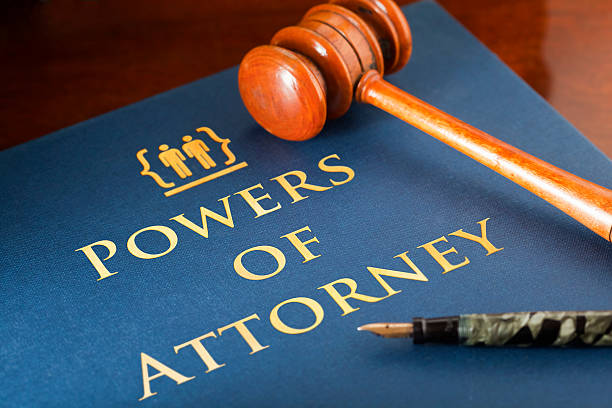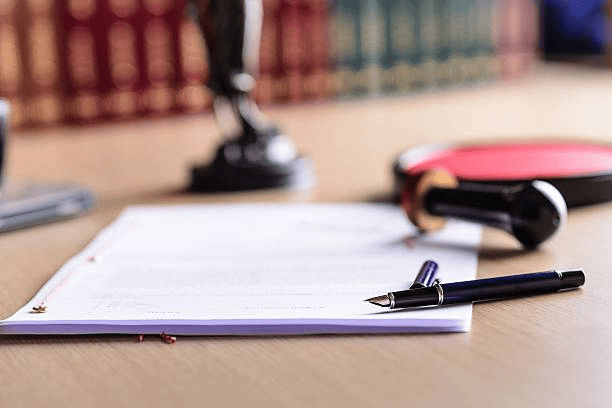The Power of Attorney Act 2014 is a piece of legislation in Victoria, Australia. It has a significant impact on the way Victorians manage their financial and legal affairs. The Act provides a legal framework for individuals to appoint someone else to act on their behalf. This is particularly in situations where they may not be able to make decisions for themselves.
What is the Power of Attorney Act 2014?
The Power of Attorney Act 2014 is a law that provides a framework for creating and using powers of attorney. A power of attorney is a legal document that allows a person (the principal) to appoint another person (the attorney) or more than one attorney to act on their behalf in financial and legal matters.
The attorney can have a broad range of powers. This includes from managing the principal’s finances to making decisions about their medical treatment. The Power of Attorney Act 2014 sets out the rules and requirements for creating a valid power of attorney. Moreover, it also states the obligations and responsibilities of attorneys.
Types of Powers of Attorney Victoria
The Power of Attorney Act 2014 recognises three types of powers of attorney:
- General non-enduring powers of attorney
- Supportive powers of attorney
- General enduring powers of attorney
What are their responsibilities?
- A general non-enduring power of attorney grants an individual the authority to handle your financial affairs for a predetermined amount of time.
- A supportive power of attorney allows a person to help you make decisions about your financial and personal matters.
- A general enduring power of attorney permits someone to have the decision making capacity when you’re not able to decide about your financial and personal matters due to a serious illness or injury.
Note: A supportive attorney appointment is type of appointment that appoints an attorney powers for financial matters.
Creating a Power of Attorney Victoria
Creating a power of attorney is a relatively straightforward process. However, it is important to seek legal advice to ensure that the document is valid and meets your specific needs. The Power of Attorney Act 2014 sets out the requirements for creating a valid power of attorney. This includes the need for the principal to have the capacity to make decisions at the time the document is created.
When creating a power of attorney, it is important to carefully consider who you appoint as your attorney and the powers that you grant them. You should also discuss your wishes with your attorney to ensure that they understand your preferences and can make decisions that align with your values and beliefs.
Here are the steps to create a Power of Attorney in Australia:
1. Determine what type of Power of Attorney you need
As discussed in the previous section, there are three types of powers of attorney: general non-enduring powers of attorney, enduring power of attorney, supportive power of attorney.
2. Choose your attorney.
Choose someone you trust to act as your attorney. This could be a family member, friend or professional such as a solicitor or accountant.
3. Complete the corresponding Powers of Attorney form.
The form must be completed correctly and signed by both the principal and the attorney. You can download the forms here:
4. Have the Power of Attorney Victoria witnessed
The Power of Attorney must be witnessed by an authorised person who is 18 years of age or older. Each type of POA has different requirements for a witness to be qualified.
- Enduring power of attorney – One of the witnesses must be a medical practitioner or a person who is authorised to witness affidavits.
- Supportive power of attorney – One of the witnesses must be a person who is authorised by law to witness the signing of a statutory declaration.
- General non-enduring power of attorney – There is no legal requirement for this type of POA to be witnessed unless the principal is unable to sign the form.

What if My Power of Attorney Abuses that Power?
Giving someone a power to make decisions about important matters of your life allows them partial control over important things. Thus, such power is prone to abuse and misuse. Here are are some forms of abuse of a power of attorney:
Financial Abuse
This occurs when the person granted power of attorney uses their authority to take advantage of the vulnerable person’s finances. Examples include:
- taking money from the person’s account without their permission,
- selling their property without their knowledge, or
- making investments without their consent.
Neglect
This occurs when the person granted power of attorney fails to fulfil their duties and responsibilities to the vulnerable person. Examples include:
- failing to provide adequate care,
- failing to pay bills on time, or
- failing to make necessary medical arrangements.
What Are the Legal Remedies Available?
There are instances where the attorney abuses their power, such as misusing the principal’s funds or property, or making decisions that are not in the principal’s best interests. In such cases, there are several remedies available to address the abuse of power of attorney in Victoria, including:
- Revocation of the power of attorney. The principal can revoke the power of attorney at any time, provided that they have the mental capacity to do so. They can do this by giving written notice to the attorney and any third parties who have been dealing with the attorney on their behalf.
- Termination of the attorney’s authority. If the attorney has acted improperly or is no longer able to act on behalf of the principal, the principal or any interested person can apply to the Victorian Civil and Administrative Tribunal (VCAT) to terminate the attorney’s authority.
- Compensation. If the attorney has caused financial loss to the principal, the principal or any interested person can seek compensation from the attorney. In some cases, the attorney may be personally liable for the loss.
- Criminal charges. If the attorney has committed a criminal offence, such as theft or fraud, they may be charged and prosecuted by the police.
It is important to note that prevention is always better than cure. To minimise the risk of abuse of power of attorney, the principal should carefully consider who they appoint as their attorney, provide clear instructions and limitations on their authority, and monitor their actions regularly.
It is imperative for you to take action if abuse of power of attorney is suspected to protect the vulnerable person and their assets. If you have any concerns, seek legal advice immediately.

Seeking Legal Advice Regarding Power of Attorney Victoria
If you are considering creating a power of attorney in Victoria, NSW or any other state, it is important to seek legal advice and carefully consider your options to ensure that the document meets your specific needs and preferences. Working with a lawyer can help ensure that the document is legally valid and meets the specific needs of the principal.
JB Solicitors can help you understand the legal requirements under the Power of Attorney Act 2014, customise the document according to your specific needs and circumstances, choose the right agent, avoid pitfalls, and ensure that powers of attorney documents is valid.
If there is an abuse in the power of attorney, we can take legal action to protect the interests of the person who granted the power of attorney. This may involve challenging the validity of the power of attorney or seeking to have it revoked.
Contact us now.
